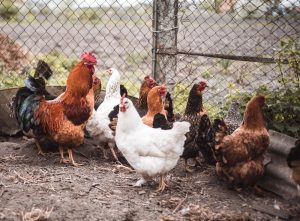THE INTERNET — or at least the corners of it I frequent — was abuzz earlier this week about this so-called feminist shark who ate her male cage-mate. I’m not surprised — I mean, they’re no kittens or Kardashians but sharks have a pretty solid digital fan base. As for feminism, well, it’s definitely having a moment. And while I’m psyched that “the social, political, and economic equality of the sexes” is trending — thanks, Bey/Ms. Adichie! — I’m a little wary of slapping the f-word on each and every news story that features a strong female protagonist. Particularly, you know, one that brutalized, devoured, and vomited back up a hapless dude. I’d be lying if I said I wasn’t slightly impressed by this dorsal-finned diva. But I think we owe it to the ladies of the animal kingdom to hold out for more nuanced, slightly less bloodthirsty feminist icons.
You know how slack-jawed idiots are always saying that women can’t lead because they’d be too emotional and nothing would ever get accomplished? I’d like to kindly direct their slack-jawed attention to Exhibit A, the elephant. Once males fulfill their part in ensuring the continued existence of the species, they break off from the herd, either alone or in small groups, to bro out. This leaves the females to govern themselves. Not only are pachyderms anything but patriarchal, their social structure also completely shatters the idea that once females are past their sexual/reproductive prime, they’re useless. Their herds are led by the largest, oldest female. These leading ladies are totally in tune with their community’s emotions (quick side rant: how could that possibly be considered a negative trait in a leader?!), even leading elaborate mourning ceremonies for their fallen. But they also lead their herds on dangerous, mile-long treks to watering holes every dry season. Why? Because:
Next, we have the zebra finch. When she mates with a less than desirable guy (hey, we’ve all had those nights) she is unperturbed and actually gives their egg extra nutrition and care to compensate for its lackluster genes. This is rare; most birds will pretty much leave their eggs to die when they’re conceived from deadbeat dads, effectively pretending the whole ugly affair never happened. Does this mean we’re all obligated to bear fu**boys’ heirs and feed them caviar? Def not. But when it comes to a lack of shame, the zebra finch might be onto something. Instead of letting our screw-ups send us spiraling into denial and damage-control mode, why not care for the parts of us that are still growing, give our flaws a little extra TLC? Not only regrettable one-night stands, but any blunders can be lessons, opportunities, or at least a funny brunch story. Pour a mimosa, make like a zebra finch, and embrace imperfection.
Think animal feminism is limited to the fairer sex? Think again! Definitely one of the most progressive species when it comes to childbearing (and also when it comes to experimenting with bold neons, damn), seahorses are the ultimate stay-at-home-dads. Females implant fertilized eggs into males’ pouches, where they’re fertilized and carried until birth. The mamas are involved, marginally and on their terms, visiting their pregnant mates daily for “morning greetings,” which is coincidentally one of the cutest legit scientific terms I’ve ever encountered. Doesn’t it make you think of a glass ceiling-shattering seahorse CEO grabbing coffee, planting a hurried kiss on her hubby, and zipping out the door for a meeting? Forget good guys being “unicorns”; we need more seahorses! AKA dudes secure enough in their masculinity to take on traditionally-feminine roles in order to support their partner. Just think: while your boyfriend is tweeting #NotAllMen, somewhere some seahorse is watching the kids and heating up dinner. Or something like that.
Not to be outdone by gender-bending seahorses, flatworms kick archaic heteronormative constructs to the curb… or they would if worms could kick. These androgynous badass invertebrates can reproduce asexually, but most prefer a partner as its safer, more efficient, and probably, let’s be real, sexier. Since flatworms have both male and female reproductive organs, they decide who will do the inseminating through epic battles — sometimes referred to as “penis fencing” — in which the strongest appendage wins. These face-offs can last for hours, and while they sound potentially kind of exhausting and sometimes downright gruesome, I’d like to think this marathon-length mating ritual is at least partly due to passion. What can I say? I’m a romantic.
I’d like to close with the brown trout, who has been known to fake orgasms in order to trick males and speed up the mating process. And while as an empowered, sex-positive woman I’d never recommend this behavior… Hey, sometimes it’s taking forever and you’re over it and you just want to watch Scream Queens and call it a night. Yaaas, brown trout, yaaaas.


















